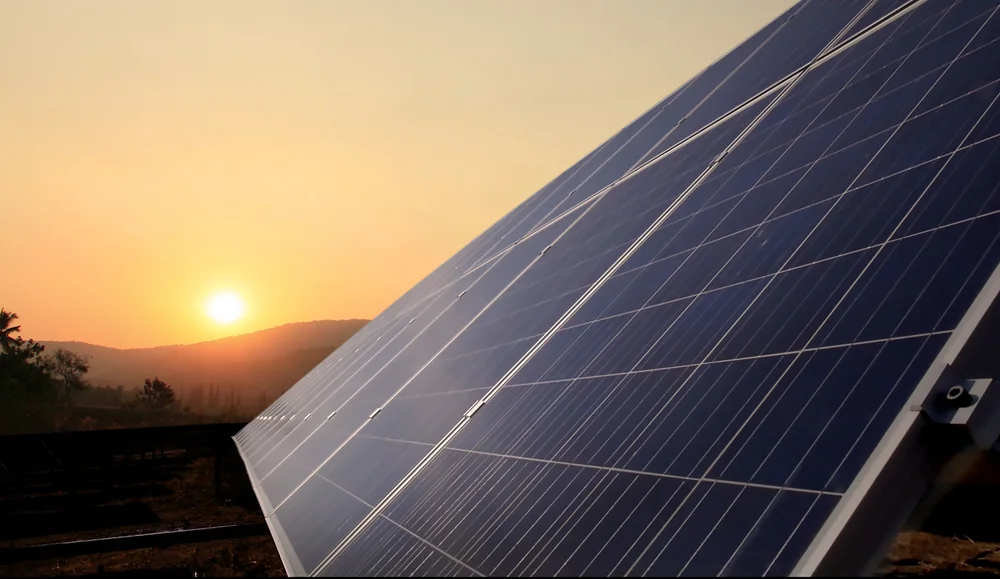The worsening load-shedding crisis and double-digit tariff increases are causing homeowners to seek alternatives to Eskom’s supply. While solar power is an attractive option, there are rules to consider if you live in a residential estate or complex.
This article explores what homeowners should be aware of when installing solar power.
Tip: A personal loan may help you to invest in a solar system for your home.
Solar power is increasingly popular
South African households are increasingly turning to solar power as Eskom fails to generate sufficient capacity.
“The number of residential estates installing solar and storage is skyrocketing. It’s arguably the most sensible, affordable and energy-secure option,” says Kailas Nair, co-founder of smart energy company Plentify.
While the owners of standalone homes have leeway to install solar power systems, what regulations should owners in complexes bear in mind?
Which rules apply?
Homeowners’ associations and sectional title body corporates may regulate installations, says Retha Kriek, managing director of boutique property management agency Rozewood.
“Body corporates are managed under the sectional titles schemes management act, which is very specific about the way in which common property must be managed, and how approval must be given for installations of items on the common property,” she says.
When installed on common property, solar panels are typically placed on the roof of the complex or carports. In these cases, every solar request requires that a special general meeting be held, with 33% of owners or their proxies present. At least 75% of those in attendance must vote in favour of the resolution.
Kriek says conduct rules can be amended, but these new rules must be approved by the Community Schemes Ombud Service (CSOS).
“In the case of private installations, bodies corporate should ensure there are rules and a framework that makes it easier for owners to receive approval for solar installation,” she says. “Given the current circumstances in our country, this should be treated as an emergency, not a discretionary requirement for units.
“If the body corporate is of sufficient size, it can approach suppliers that install solar for the complex as a whole. There are options to fund such installation, with rebates on the rates for owners – although this isn’t feasible for smaller complexes due to economies of scale.”
Owners that are governed by a homeowners’ association will need to study the conduct and architectural rules within the memorandum of incorporation, says Kriek.
“The homeowners’ association would have to recognise the need to update their rules if they don’t make provision for electricity.”
Do you need to register a solar system?
Kriek says you don’t need governmental permission to install solar panels.
“In July 2022, President Cyril Ramaphosa outlined government plans to abolish a 100MW licensing cap on private-sector renewable energy projects,” she notes.
Considerations for owners and complexes
Nair says there are further considerations for owners, for example, whether they would like solar panels, batteries, or both, and whether their estate is planning to install a solar farm for the entire estate (which would be more cost-effective).
“If estates are leaving it up to individual homeowners to install their own solar systems, it’s worth asking if they can support the transition to solar by purchasing excess solar from those who install a system,” Nair comments.
James Honiball, chairman and director of Eagle’s Landing Estate Homeowners’ Association, says there are several options for energy conservation that complexes can consider.
- Renting solar panels for common areas, rather than purchasing them outright, which can reduce the upfront costs and the risk associated with owning and maintaining panels.
- Sharing systems or costs with neighbouring properties or developments, which can dilute costs.
- Installing batteries to help store excess energy generated by solar panels, and making it available for use during periods of high energy demand, or when the panels are not generating electricity.
- Encouraging residents to upgrade their appliances to more energy-efficient models, such as Energy Star-rated appliances, which reduces the complex’s overall energy consumption.
- Installing smart meters that can provide real-time information on energy consumption and help residents understand the need to reduce their energy usage.
- Installing backup generators to provide electricity during power outages, which can ensure continuity of supply for residents and common areas. These can be a challenge, however, due to noise, insurance risk, and the risk of storing fuel sources.
“The best solution will depend on the specific needs and circumstances of the complex and its residents,” Honiball points out.
Who covers the insurance of a solar system?
Kriek says insurance in a sectional title complex is added to the complex insurance as part of the common property and recovered from individual owners.
With a homeowners’ association, the owner is responsible for insuring the solar system with their own insurer.
Tips for solar installation
Kriek points out that the solar industry is not yet regulated, so it’s essential to make sure that the supplier you choose has a good track record and can issue a certificate of compliance for installation.
“Ask for a reference before engaging a supplier, and make sure they have performed successful installations before,” she warns.
Nair says you should think about enhancing the output of your solar system by coupling it with smart load management technology; for example, an intelligent thermostat for geysers that can shift their power consumption to solar times.
Although it may be tempting to install your own solar system by sourcing and putting together parts, solar installation involves electrical work, which requires a licence and expertise to ensure it’s done safely and in compliance with local regulations, says Honiball.
Tip: Home insurance includes newly installed solar panels, provided they are a fixture on the property. Make sure your home is fully insured today.

